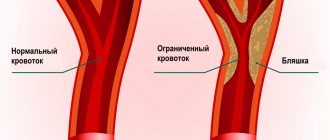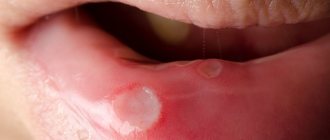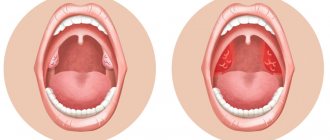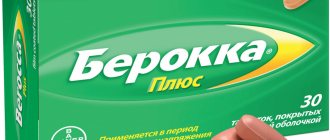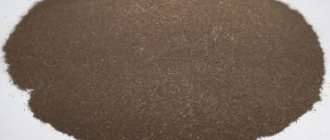Types of drugs to enhance immunity
It is recommended to take medications to enhance immunity for the purpose of treatment and prevention during periods of massive spread of viruses and infections - epidemics of influenza, measles, coronavirus. Such products increase the body’s immune barrier and help it quickly produce active antibodies to fight viruses and pathogenic bacteria.
There are several types of effective medications designed to increase and maintain high immunity in an adult or child.
- herbal tablets;
- preparations based on animal ingredients;
- bacterial preparations;
- interferon or nucleic acid preparations.
The choice of immunomodulator depends on the form and severity of the disease. In severe, protracted forms, a sick person may be prescribed complexes that increase immunity in the form of tablets or injections. The duration of taking medications is determined individually.
Get to know the client
Respiratory infections are considered the most common diseases in the world. On average, every adult becomes infected with ARVI viruses 4–6 times a year. Children, due to the characteristics of the immune response, get sick more often - from 6 to 8 times a year [1]. With such a frequency of ARVI, it seems natural that consumers would want to prevent the development of infection. Immunomodulatory drugs are proposed to satisfy this need.
Potential consumers of drugs that increase the body's defenses can be divided into two groups:
- parents of frequently ill children, often of preschool and primary school age, who want to purchase a drug for their child;
- adults who plan to take the drug to prevent infection with ARVI during an epidemic or after contact with a patient.
As a rule, requests for products to enhance immune protection are quite transparent: clients clearly voice the need in a conversation, which makes the task of the chief executive easier. He just has to find out who the drug is intended for - an adult or a child. It is also necessary to understand what requirements the consumer places on it and identify the presence or confirm the absence of so-called “red flags”.
Effective immunomodulators for adults
Immunomodulators, produced in various pharmacological forms - dietary supplements, tinctures, syrups, injection solutions, tablets, capsules and dragees, will help to effectively strengthen the immune system. List of good remedies to improve immune strength:
| Medicine | Active substance | Manufacturer | average cost |
| Anaferon | Affinity purified antibodies to human interferon gamma | LLC NPF Materia Medica Holding, Russia | 205-275 rubles |
| Immunal | Echinacea purpurea juice | ZAO Sandoz, Russia | 280-380 rubles |
| Imudon | Lysates of microorganisms | Solvay Pharmaceuticals, France | 280-465 rubles |
| Viferon | Interferon alpha | Feron LLC, Russia | 155-365 rubles |
| Lycopid | Glucosaminylmuramyl dipeptide | JSC "Peptek", Russia | 260-270 rubles |
| Ribomunil | Titrated bacterial ribosomes | Pierre Fabre Medicament Production (France) | 3000-3350 rubles |
| Thymogen | Alpha glutamyl tryptophan | JSC MBNPK Cytomed, Russia | 185-340 rubles |
Immunal for immunity
Immunal is an immunomodulating drug based on purple echinacea juice and a vitamin complex. The drug is available in several pharmacological forms - drops, tinctures or tablets. It increases resistance to various viruses and infections, prevents diseases of the respiratory system.
Immunal in the form of tablets for oral administration is approved for use for children from 4 years of age, drops - from 1 year.
Tincture, tablets and drops of Immunal are prescribed in the complex treatment of tuberculosis infections, rheumatoid arthritis, leukemia, infectious lesions of the lungs, and during the rehabilitation period after surgery.
It is recommended to take the tablets 3-4 times a day, the solution is used in a dosage of 2.5 ml three times a day. If there is no positive result within 10-14 days, you should consult a doctor to adjust the dosage or select another immunomodulator.
Immunal can cause side effects in the form of headaches, dizziness, shortness of breath, skin rashes accompanied by itching and swelling, a sharp decrease in blood pressure, and bronchospasm.
Timaktide and Timogen for low immunity
Timaktide is a potent immunomodulator based on animal components. The medicine is produced in the form of tablets that must be dissolved under the tongue.
Timaktide is prescribed as an auxiliary drug for infectious, purulent-inflammatory processes. The medication is also used in cases where the patient is contraindicated in herbal remedies.
In most cases, Timaktide is prescribed for severe mental or physical fatigue, frequent stress overexertion, weakness and loss of strength.
The drug is prohibited for use by women during all trimesters of pregnancy, as well as in cases of hypersensitivity to the active components included in its composition. Timaktide should not be taken simultaneously with other immunomodulatory drugs.
Thymogen is an immunomodulator that is available in the form of a liquid solution for intramuscular administration and drops for injection into the nose. Used in the complex treatment of severe viral and bacterial diseases occurring in acute or chronic form.
Thymogen is prescribed before or after radiation or chemotherapy, after a long course of antibiotics, for severe and extensive burns. The drug has a minimal number of contraindications - these include only hypersensitivity to the drug.
Application of Viferon
Viferon is one of the most popular and widespread drugs for quickly increasing immunity in adults and children. The pharmacological agent is highly effective and safe, so it can be used to treat children from newborn age, as well as women during pregnancy and breastfeeding.
Viferon is available in the form of ointment and rectal suppositories.
Viferon rectal suppositories are very convenient to use for treating children. The drug is approved for use from birth. But in such cases, Viferon suppositories should only be prescribed by a doctor.
The medicine has only one contraindication for use - hypersensitivity to the active components that make up Viferon. It can cause an allergic reaction, which manifests itself as skin redness and rashes. When using rectal suppositories, swelling, itching and burning may occur at the site of insertion of the suppository.
Application of Anaferon
Anaferon is an effective homeopathic immunomodulator. The product helps fight viral pathogens, which is why it is most often prescribed to strengthen the body’s protective barrier during the flu and seasonal colds.
Anaferon can be used both to prevent the disease and after a person has fallen ill. It forms stable immunity to pathogenic microorganisms that cause disease, cleanses the body of toxins and waste products of bacteria.
Adult patients can use Anaferon classic. A separate drug “Anaferon for children” is produced for children. It is prescribed in the complex treatment of acute and chronic viral infections caused by rotavirus, coronavirus, enterovirus, and the causative agent of tick-borne encephalitis.
Anaferon is highly effective in the treatment of herpes lesions and bronchopulmonary diseases. The main indication for the use of this medication is any condition accompanied by chronic immunodeficiency.
Red flags
Identifying warning signs that require consultation with a physician is an important part of pharmaceutical counseling. Red flag symptoms:
- weakness, malaise of unknown origin;
- fast fatiguability;
- fatigue that does not go away after a full night's sleep;
- drowsiness, decreased daytime activity;
- constant aches in muscles and joints;
- frequent long-term colds that occur with complications;
- skin problems - poor wound healing, bruising, bleeding gums.
If the client notes any of these symptoms, he should be strongly advised to consult a doctor. But this does not mean that he should not let go of anything. The mere presence of red flags, or their absence, does not interfere with satisfying the buyer’s request. Moreover, among the drugs of the OTC group, you can easily select immunomodulators for both children and adults.
Herbal preparations
Some of the most powerful and fastest-acting immunomodulators are herbal products. Natural herbs in their composition effectively stimulate the body's protective barrier. The list of the best natural immunomodulators includes:
- Eleutherococcus;
- hawthorn; ginseng;
- ginger;
- Echinacea.
Echinacea tincture is an effective herbal remedy recommended for use during colds, severe fatigue, loss of strength, and frequent stress. The product quickly increases the body's resistance to viruses and pathogenic bacteria. It also has a pronounced anti-inflammatory and bactericidal effect against dental infections and genitourinary diseases.
In rare cases, after consuming Echinacea tincture, side effects appear in the form of nausea and digestive disorders.
Echinacea should not be taken by children under 7 years of age or by women during pregnancy and breastfeeding. Diabetes mellitus, tuberculosis and cancer are also considered contraindications for use.
Preparations based on animal components
Medicines based on components of animal origin are produced from various parts of pig or cattle carcasses - thymus glands, spleen, bone marrow. The active components have a quick effect on the human body.
Preparations based on animal ingredients are recommended for use in the most severe forms of immunodeficiency - both congenital and acquired. Treatment of men and women with such drugs is carried out only as prescribed by a doctor and under his supervision. Effective drugs based on active substances of animal origin include:
- Splenin;
- Wilosen;
- Thymogen;
- Timactid;
- Timalin.
They are developed on the basis of the thymus gland - the thymus gland of domestic animals, as well as cattle. The main advantage of such medications is their effect on immune forces at the cellular level, which allows their use in the most severe and advanced forms of diseases.
Bacterial agents for immunity
Bacterial immunomodulators are drugs based on elements of bacterial cells. With regular use of this medication, the body's resistance to pathogens increases. Their action is similar to the action of vaccines - the patient is injected with dead or live, but weakened bacteria, in response to this, active antibodies begin to be actively produced in the human body.
Bacterial agents include:
- Ribomunil;
- Lycopid;
- Imudon;
- IRS-19.
Ribomunil is a medicine in the form of capsules for oral administration. Most often prescribed in the complex treatment of colds and ENT diseases. The medication is approved for use during pregnancy, as well as for children over 5 months.
In rare cases, Ribomunil may cause side effects such as stool upset, nausea and increased body temperature.
Lykopid - increases the body's protective barrier and helps in the treatment of viral, infectious and inflammatory diseases. Contraindications include pregnancy and lactation.
Imudon is available in the form of tablets intended for absorption under the tongue 5-6 times a day. The medication is recommended for use in dental diseases of an infectious-inflammatory nature. The medicine is approved for use in children over 3 years of age.
Interferon preparations
Interferon-based drugs are highly effective in both acute and chronic diseases of an infectious-inflammatory nature. They contain protective proteins that block the development of the infectious process. Such medications act on the body at the cellular level, increasing its protective properties and helping to actively fight the disease.
Effective interferon-based drugs include:
- Viferon;
- Anaferon;
- Interferon.
Interferon-based products not only improve immunity, but also eliminate the unpleasant symptoms of colds - soreness, redness and swelling of the throat, lacrimation, weakness, loss of strength and increased body temperature.
Interferon-based medications are approved for use in children over 3 years of age. In some cases, with excessively weakened immunity, the doctor may prescribe interferon to children after 1 year. In such situations, the dosage of the medicine is selected individually, depending on the age and general health of the child.
Nucleic acid preparations
Nucleic acid-based drugs are stimulants that are interferon inducers and help enhance acquired immunity in adults and children. Nucleic acids are divided into natural and artificial.
Common nucleic acid preparations:
- Sodium nucleinate
- is a mixture of nucleic acids obtained from yeast; - Poludan
- this medication is based on a complex of polyuridyl and polyadenylic acids; - Derinat
- the pharmacological action of this medication is based on DNA elements obtained from the milt of sturgeon fish.
Nucleic acid preparations are available in the form of tablets for oral administration, as well as dragees intended for resorption. They quickly eliminate pain and sore throat, runny nose, swelling of the larynx and other unpleasant symptoms of colds.
Define preferences
The range of over-the-counter immunomodulators is quite wide.
Table 1. Classification of over-the-counter immunomodulators (except homeopathic) [2]
| Group of drugs | INN |
| Herbal medicine |
|
| Interferons |
|
| Interferon inducers |
|
| Other immunomodulators |
|
During the “high” season, when there are a lot of visitors to pharmacies, the drug dealer often does not have the opportunity to talk in detail about the advantages and disadvantages of each immunomodulator.
To quickly find a drug that is suitable for a specific person, you can immediately find out what requirements he places on the drug in the first place, and begin making recommendations, significantly narrowing the circle of INNs.
Let's consider the basic requirements of consumers and the drugs that meet them.
Vitamin complexes
An important addition to immunomodulatory therapy are vitamins and dietary supplements, which also contain micro- and macroelements. Multivitamins effectively normalize physiological, metabolic and biochemical processes in the body, strengthening the immune barrier and increasing its level, as well as improving the body's resistance to viruses and infections.
Effective vitamin complexes:
- Alphabet During the Cold Season;
- Vitrefor;
- Vitacap;
- Centrum;
- Gerimaks;
- Vitrum;
- Doppelhertz Active;
- Multitabs;
- Supradin.
Multivitamin complexes are intended for long-term use and do not provide quick results. Depending on the general health of a person, the duration of a vitamin course can range from 1 to 12 months.
In addition to vitamin complexes and dietary supplements, tablets or injections of B vitamins - pyridoxine, cyanocobalamin, riboflavin, nicotinic acid or thiamine - can be prescribed.
Such drugs effectively stimulate metabolic processes in the body, improve the functioning of the central nervous system, and increase resistance not only to viruses and infections, but also to stress.
Diet, sleep, water: what to do to strengthen your immune system
Physician-therapist of Sechenov University, Candidate of Medical Sciences Vladimir Beketov shared tips on how to protect yourself from respiratory diseases
Summer is the time to take care of yourself and your health. This is especially true this year, during the pandemic of the new coronavirus infection, as more and more voices are heard talking about a second wave of the epidemic in the fall. In any case, autumn cold weather is traditionally accompanied by influenza and acute respiratory viral infections, so taking care of your immune system will definitely not be superfluous.
But how to strengthen your immune system correctly? And how can you not succumb to the trick of myths about the body’s defenses, wasting your time and money, or even harming yourself? Vladimir Beketov, candidate of medical sciences and general practitioner at Sechenov University, commented on the truth and myths about immunity especially for KP.
WHAT IS IMMUNITY
Immunity is a complex multicomponent system. It is finely tuned and consists of a large number of different cells, neutrophils, basophils, eosinophils, lymphocytes, as well as lymphatic tissues. All these cells communicate with each other using special molecules (or also called messengers) - with the help of cytokines and interleukins. They are capable of producing antibodies, interferons, which directly come into contact with bacteria, viruses and fungi.
IS IT TRUE THAT IMMUNITY IS STRONGER IN SUMMER?
“The formulation “immunity strengthens in summer” is not entirely true,” says general practitioner Vladimir Beketov. – From the point of view of evidence-based medicine and modern science, a person’s immunity is the same in all seasons, otherwise you and I would get sick with completely different diseases in different seasons. It is important for us that the immune system, our defense, is full at all times. Seasonal factors that influence susceptibility to disease are rather how many people are in one room and how often a person gets hypothermic. How frequent and close contacts between people are.
WILL CORONAVIRUS HIT US IN THE AUTUMN? AND HOW TO PROTECT FROM THE FLU
During the cold season, that is, from approximately November to February, there is a seasonal peak of respiratory infections, the so-called ARVI. The most dangerous of them today are the new coronavirus infection caused by the SAR-CoV-2 virus and influenza.
“The coronavirus pandemic is now ongoing, and we see that hopes that summer heat or less humidity will have a positive effect on the incidence of COVID-19 are not justified. There are countries in which the incidence remains high, such as India or Iran, for example, despite a favorable climate. Therefore, one cannot expect that the SARS-CoV-2 virus has any pronounced seasonality,” says general practitioner Vladimir Beketov. “We are now intensively preparing to prevent the influenza epidemic from adding to the coronavirus epidemic. The Ministry of Health and the government of the Russian Federation are taking all measures to prepare for enhanced vaccination. Modern flu vaccine has been purchased in large quantities. Our influenza research institute in St. Petersburg began to produce a very effective quadrivalent vaccine: it resists four types of influenza virus simultaneously. The vaccine is recognized by WHO experts as one of the best in the world. From the end of August until October, I would recommend that absolutely everyone get a flu shot.
If a person suffers from chronic pulmonary diseases, or heart disease, or diabetes, then the flu vaccine is not only not contraindicated, but, on the contrary, is highly recommended.
HOW TO PROTECT YOURSELF FROM PNEUMONIA
Throughout our country, you can get vaccinated against pneumococcal infection free of charge in clinics using your compulsory medical insurance policy.
— People over 60 years of age and with heart failure or chronic bronchopulmonary diseases, such as chronic obstructive pulmonary disease (COPD) or bronchial asthma, can be vaccinated with an anti-pneumococcal vaccine at local clinics. This is especially important due to the fact that any viral disease, including COVID-19 and respiratory syncytial virus, and other viruses that can cause ARVI, very often have bacterial complications on the fifth to ninth day in the form of bacterial pneumonia, when a bacterial infection superimposed on the viral one,” says general practitioner and pulmonologist Vladimir Beketov.
It has been proven that in most cases, community-acquired pneumonia that follows a viral infection is caused by pneumococcus, the bacterium that lives in almost all of us in the upper respiratory tract.
When the pneumococcus bacterium travels lower down the respiratory tract, it begins to cause infection.
“So, there is a modern, well-functioning vaccine against this pneumococcal bacterium, which has made it possible to reverse the situation with community-acquired pneumonia all over the world,” says general practitioner Vladimir Beketov. — The injection is given once and if it is the Prevenar 13 vaccine, then the protective effect lasts for life. If it is the Pneumovax or Pneumo23 vaccine, then these vaccines work for several years. Therefore, it is reasonable for older people and those who are at risk for health reasons to get vaccinated against pneumococcus right now, during a favorable period when clinics are not overloaded. Remember: for immunity to develop after vaccination, it will take at least 3 weeks, or better yet, a month and a half.
ARE SUPPLEMENTS NEEDED?
Our expert says that it is very unwise to perceive immunity as some kind of fortress wall that can be made higher, thicker, or strengthened. Immunity is a finely tuned system of interaction between cells, cytokines, antibodies, immunoglobulins, interferons. And strengthening the immune system with the help of some drugs, dietary supplements, decoctions, echinacea tinctures, with the help of homeopathic medicines, with the help of interferon, unfortunately, is impossible.
“All these drugs and all these approaches to strengthening the immune system of a healthy person do not provide a pronounced lasting effect, as clinical trials with placebo control show. This is a waste of time and money and overloads the kidneys and liver with unnecessary substances, says general practitioner Vladimir Beketov.
What can reliably, from the point of view of modern medicine and science, make the immune system more efficient, more active? Like any “combat unit,” the immune system must be trained. Vaccination is a way to train the immune system.
HOW MUCH TO SLEEP
A person gets enough sleep if he sleeps at least 7, and preferably 8 – 9 hours a day. If this is not possible, then it is reasonable to supplement your short night sleep with daytime sleep. It is enough to take a nap during the day from 20 minutes to 1 hour; this significantly improves the functioning of cells of the immune system, the production of interferons, antibodies and cytokines, and also leads to the fact that the immune system is better prepared to repel the attack of viruses and bacteria.
HOW TO EAT
For a healthy immune system, you need a complete and varied diet with plenty of fiber, that is, dietary fiber, which is found, for example, in bran, fruits, vegetables, and herbs. These products bring the intestinal microflora into balance in relation to the immune system and other systems of the human body, which helps immunity.
“Good functioning of the gastrointestinal tract is very important for keeping the immune system in good shape,” the general practitioner reminds. “Therefore, what we eat directly affects the activity of our lymphocytes and the production of antibodies and interferons by the immune system.
It is important that your diet contains less fat and more protein. Remember that certain proteins cause allergies. For example, many people are intolerant to lactose, certain types of milk proteins, and egg whites. Therefore, you need to take into account your personal characteristics and select nutrition for yourself. However, if we talk about a universal approach, then preference should be given to light types of protein. Good light cheeses: Adyghe, Suluguni, mozzarella, feta - low-fat and not hard. Eat less beef, pork and other types of meat. There is no need to be afraid that you will not get enough iron by thinning out beef in the menu, for example. If you eat buckwheat, legumes, mushrooms, fish, then you should not expect that you will develop iron deficiency in the absence of diseases of the gastrointestinal tract.
— The older a person gets, the less meat products you need to eat. Especially red processed meat, that is, sausages, sausages and sausages. Preference should be given to chicken, turkey, chicken eggs and, to a greater extent, fish. “This is much better for health, for the prevention of cancer and atherosclerosis,” the doctor reminds.
HOW MUCH WATER TO DRINK
There is a universal formula that allows you to calculate the volume of fluid sufficient for the adequate functioning of the gastrointestinal tract, and, consequently, all body systems, including the immune system. This is 30 ml per kilogram of weight. That is, if you weigh 100 kilograms, then you need to drink, this is especially important in the summer in the heat, 3 liters of water. True, you don’t need to drink 3 liters of water in one gulp. It is best to drink a glass of water at room temperature before breakfast, 15 to 20 minutes. Then breakfast. After an hour or 45 minutes - coffee or tea, volume 300 - 400 ml. Before lunch, you need to drink water again, then have lunch, but without washing down your food so as not to dilute the digestive enzymes. Then after an hour you can drink tea or coffee to lower the digestive tract and facilitate digestion. The same scheme is valid for afternoon tea and dinner. But it’s better not to drink water at night.
“This is a universal mechanism for fluid consumption, which will allow you to stay healthy and will indirectly have an impact on supporting the immune system, and in the long term, will help the digestive system to be in good shape,” explains the doctor. – In addition, in the summer, with regular consumption of water, the body will not overheat, and the mucous membranes will be sufficiently moisturized. The mucous membranes of the body are our natural barriers against viruses and bacteria; this is the part of the body where the immune system is represented to a greater extent. Therefore, with good water consumption, the respiratory tract will be well hydrated and will be able to more actively resist viruses.
HOW MUCH YOU CAN SUNBANN
Vitamin D, which is involved in the formation of immunity, is produced under the sun. So many people try to use every minute to sunbathe.
Active sunbathing in the summer can lead to an exacerbation of herpes viruses, to a rash of so-called fever on the lips, our expert recalls. In addition, skin diseases become more active in the sun.
“These illnesses can distract the immune system from fighting other pathogens, so excessive exposure to sunlight in the summer is not recommended. This is important both from the point of view of protecting the immune system and as a prevention of the risk of skin tumors, so you can be in the open sun for 30 minutes - 1 hour a day. This will be enough to produce the required amount of vitamin D, says general practitioner Vladimir Beketov.
Yes, most people in our country lack vitamin D (due to a small number of sunny days and a monotonous, poor diet). But not everyone has it! Therefore, the expert recommends determining the level of vitamin D in the blood, and, if necessary and as prescribed by a therapist or endocrinologist, taking vitamin D in the form of capsules or solution.
— If an analysis for the level of vitamin D in the blood is not available to you, then there are general recommendations. You can take 200 international units (that's one drop of vitamin D oil solution) per day without the risk of overdose. Important: vitamin D is difficult to remove from the body and its overdose is dangerous. Therefore, it is important to carefully select the dose and consult a doctor,” reminds Vladimir Beketov.
Fat-soluble vitamins E, A, K, as well as B vitamins, which are water-soluble, also affect the activity of immune cells. However, our expert does not recommend taking dietary supplements or injecting yourself with B vitamins.
- This is not reasonable, this is an extra drug load on the body. It is very difficult to predict the combination of medications and dietary supplements, as well as those medications that a person can take for chronic diseases, and we cannot protect a person from adverse reactions or from overlapping medications with each other. In addition, there is difficulty in selecting the dose. According to research, if a person does not have any serious diseases associated with deficiency of B vitamins, for example, B12 deficiency anemia or Beri-Beri disease, then there is no need to take vitamin supplements and dietary supplements. It’s enough just to eat rationally, take 30-50 grams of bran every day. at meals, introduce vegetables and fruits into the diet, as varied as possible, depending on the season and region of residence, and wallet. This will be quite enough to fill the need for vitamins, the general practitioner recommends.
Link to publication: kp.ru
